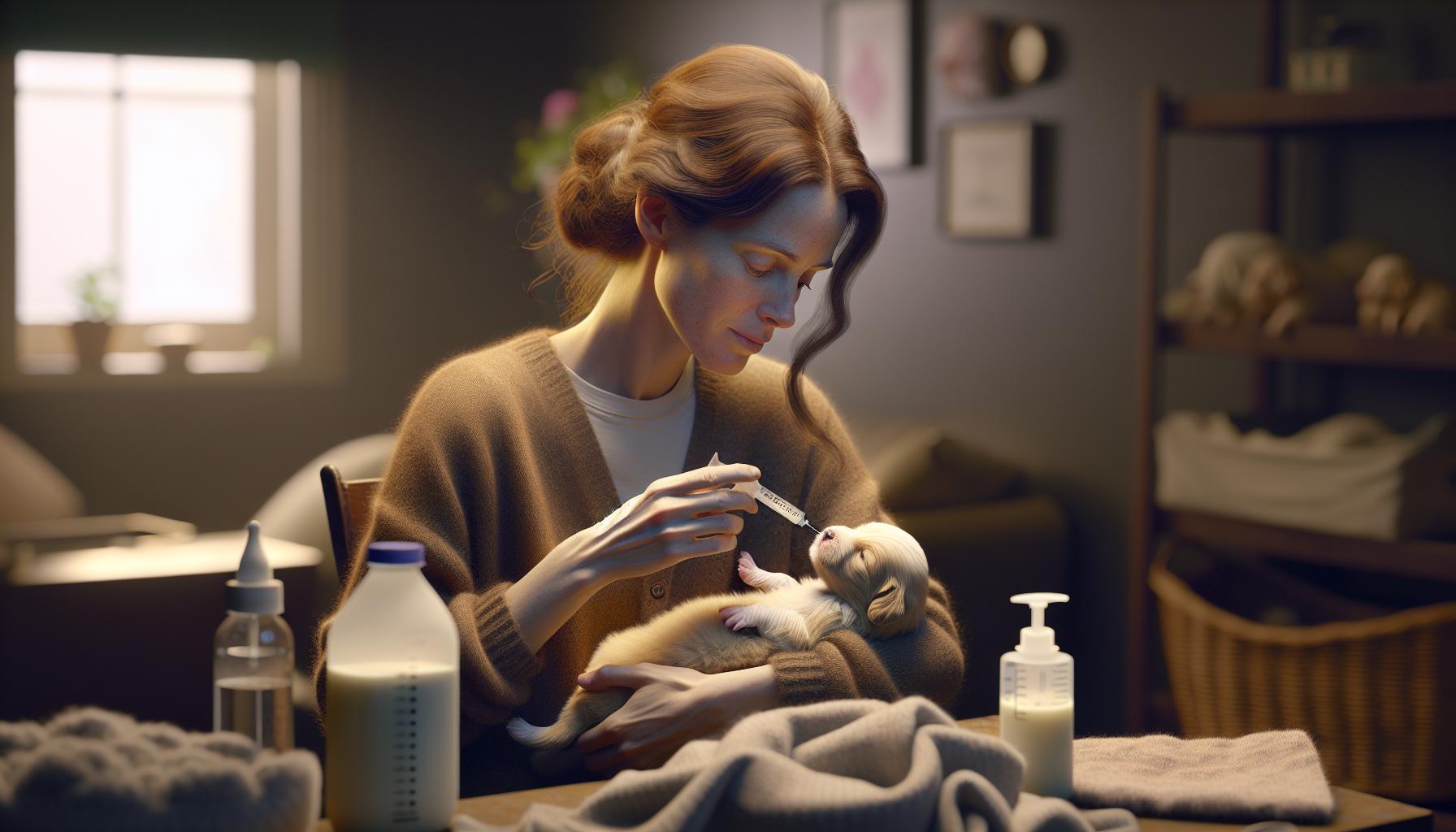Caring for newborn puppies without a mother can be both challenging and fulfilling. It demands dedication, knowledge, and a gentle touch to ensure these tiny lives thrive. From establishing a proper feeding schedule to maintaining the right temperature, every detail matters immensely.
Without maternal guidance, caregivers must step in to provide the essential nurturing that puppies need in their earliest days. Understanding their specific requirements during this critical period is key to their healthy development. This guide delves into the best practices for raising orphaned puppies, offering practical tips and insights to help them grow strong and happy.
Creating A Safe Environment
Providing a secure environment is crucial for the health and development of newborn puppies. Ensuring safety involves proper setup and consistent temperature management.
Setting Up A Whelping Area
Establish a designated whelping area that is quiet and free from disturbances. Use a sturdy box or crate with the following features:
- Size: At least 12x12x12 inches to allow movement.
- Bedding: Soft, washable materials like blankets or towels. Change bedding daily to maintain cleanliness.
- Location: Place the area away from direct sunlight, drafts, and household traffic.
- Accessibility: Ensure easy access for feeding and care without disturbing the puppies.
Maintaining Proper Temperature
Newborn puppies cannot regulate their body temperature effectively. Maintain a consistent environment by following these guidelines:
- Temperature Range: Keep the area between 85°F and 90°F for the first week. Gradually reduce to 80°F by the fourth week.
- Heating Sources: Use a heating pad set on low, placed under half of the whelping box. Alternatively, employ a heat lamp positioned above the area.
- Monitoring: Use a reliable thermometer to regularly check the temperature. Adjust heating devices as needed to prevent overheating.
- Insulation: Insulate the whelping area with blankets or towels to retain heat, especially during colder months.
Maintaining these conditions promotes the well-being and growth of orphaned puppies, ensuring they thrive in their early stages.
Feeding Techniques

Proper feeding is essential for the growth and health of newborn puppies without a mother. Implementing effective techniques ensures they receive the necessary nutrients.
Choosing The Right Milk Replacer
Selecting an appropriate milk replacer is crucial for orphaned puppies. Opt for products specifically formulated for puppies, containing essential nutrients such as proteins, fats, vitamins, and minerals. Avoid cow’s milk, which lacks the necessary balance and may cause digestive issues. Ensure the milk replacer meets the Association of American Feed Control Officials (AAFCO) standards for complete nutrition.
Feeding Schedule And Methods
Establishing a consistent feeding schedule promotes healthy development. Newborn puppies require feeding every 2-3 hours, including overnight. Use a suitable feeding method, such as a syringe or a specialized puppy bottle, to deliver the milk replacer gently. Administer approximately 5-7 milliliters per feeding for puppies under one week old, increasing the volume gradually as they grow. Monitor each puppy’s intake and adjust the schedule and amount based on their individual needs and growth rates.
Health Monitoring
Monitoring the health of newborn puppies ensures their optimal growth and development. Regular assessments detect issues early, maintaining their well-being.
Recognizing Signs Of Illness
Identifying early indicators of illness in orphaned puppies enables prompt intervention:
- Lethargy: Exhibits reduced activity and responsiveness.
- Poor Appetite: Shows decreased feeding frequency or volume.
- Diarrhea: Presents loose stools signaling digestive issues.
- Respiratory Distress: Displays rapid breathing, coughing, or sneezing.
- Weight Loss: Demonstrates consistent reduction in body weight.
- Dehydration: Reveals sunken eyes and dry gums.
Early recognition of these signs allows caregivers to address health concerns effectively.
Regular Veterinary Check-ups
Scheduled veterinary visits maintain the puppies’ health and address potential problems:
- Initial Examination: Conducted within the first week to assess overall health.
- Vaccinations: Administered according to veterinary guidelines to prevent diseases.
- Parasite Control: Includes regular treatments for fleas, ticks, and internal parasites.
- Growth Monitoring: Tracks weight and developmental milestones.
- Nutritional Assessment: Evaluates feeding practices and dietary needs.
- Emergency Care: Provides access to veterinary support for urgent health issues.
Consistent veterinary check-ups ensure comprehensive health management for orphaned puppies.
Hygiene And Care
Maintaining proper hygiene and ensuring safe handling are crucial for the health and development of newborn puppies. These practices prevent infections and promote a stress-free environment.
Keeping The Area Clean
Regular cleaning maintains a sanitary environment and reduces the risk of infections. Follow these steps to ensure cleanliness:
- Daily Bedding Change: Replace soiled bedding every 24 hours to prevent bacterial growth.
- Waste Removal: Remove urine and feces promptly using disposable gloves and sanitized tools.
- Disinfect Surfaces: Clean all surfaces with a pet-safe disinfectant twice a week to eliminate pathogens.
- Ventilation Control: Ensure proper airflow to reduce humidity, which can cause mold and mildew.
- Laundry Routine: Wash bedding and towels in hot water weekly to kill germs effectively.
- Hand Washing: Wash hands before and after handling to avoid transmitting bacteria.
- Gentle Support: Use both hands to cradle puppies, supporting their spine and hindquarters.
- Minimal Handling: Limit handling to necessary tasks like feeding and cleaning to reduce stress.
- Warm Environment: Handle puppies in a warm area to maintain their body temperature during interaction.
- Supervised Interaction: Ensure all interactions are calm and quiet to promote a sense of security.
Socialization And Development
Fostering proper socialization and development ensures orphaned puppies grow into well-adjusted dogs. Structured interactions and environmental stimulation play crucial roles during their early stages.
Importance Of Human Interaction
Consistent human interaction builds trust and reduces anxiety in puppies. Engaging with caregivers multiple times daily promotes secure attachments, essential for behavioral stability. Handling puppies gently during feeding, cleaning, and playtime encourages adaptability to various stimuli and environments.
Stimulating Growth
Providing appropriate stimuli accelerates cognitive and physical development. Introducing diverse textures, sounds, and safe objects enhances sensory experiences. Structured play sessions support motor skills and coordination, while age-appropriate toys encourage exploration and problem-solving abilities.
Conclusion
Caring for newborn puppies without a mother takes dedication and a gentle touch. It’s a journey where commitment meets compassion, ensuring each puppy thrives in its early days. Providing the right environment, proper nutrition, and consistent care lays the foundation for healthy happy dogs. While the responsibility can be challenging, the reward of watching these puppies grow and develop makes every effort worthwhile. By stepping up to care for orphaned puppies caregivers make a lasting impact on their lives and set them on the path to a bright future.

